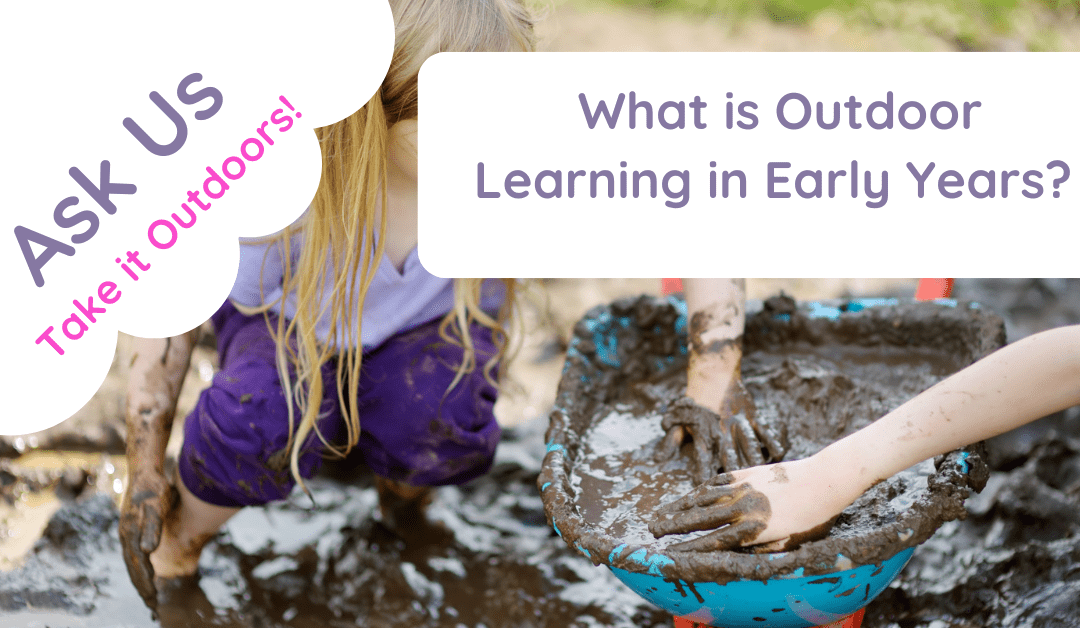What Is Outdoor Learning in Early Years?
Outdoor learning in early years education involves taking children outside to engage in structured and unstructured activities that promote physical, cognitive, emotional, and social development. This approach utilises the natural environment to create dynamic, hands-on learning experiences that are both enjoyable and educational. Outdoor learning encourages children to explore, discover, and interact with the world around them, fostering a deep connection with nature and a love for learning. In this blog post, we will explore what outdoor learning in early years entails, its benefits, and how it can be effectively implemented in educational settings.
Understanding Outdoor Learning in Early Years
Outdoor learning is not just about playing outside; it is an intentional practice that integrates educational activities with the natural environment. It involves planned lessons, exploratory play, and spontaneous activities that utilise the outdoors as a rich learning resource. This approach aligns with the principles of early childhood education, which emphasise the importance of play-based learning and experiential education.
External Resource: Learning Through Landscapes – Outdoor Learning
Benefits of Outdoor Learning in Early Years
1. Physical Development
Outdoor learning promotes physical activity, which is essential for young children’s growth and development. Activities such as running, jumping, climbing, and balancing help develop motor skills, coordination, and overall fitness.
External Resource: NHS – Physical Activity Guidelines for Children
2. Cognitive Development
Engaging with the natural environment stimulates curiosity and problem-solving skills. Children learn to observe, question, and experiment, which enhances their cognitive abilities and understanding of the world.
External Resource: Harvard Graduate School of Education – Benefits of Outdoor Learning
3. Emotional Wellbeing
Spending time outdoors has been shown to reduce stress and anxiety in children. Natural settings provide a calming environment that supports emotional regulation and mental health.
External Resource: Mind – How Nature Benefits Mental Health
4. Social Skills
Outdoor learning often involves group activities that require cooperation, communication, and teamwork. Children develop important social skills as they interact with their peers in a natural setting.
External Resource: Edutopia – Social and Emotional Learning
5. Environmental Awareness
Learning in nature fosters a sense of environmental stewardship. Children develop an appreciation for the natural world and learn the importance of protecting it for future generations.
External Resource: WWF – Teaching Kids About Environmental Conservation
Implementing Outdoor Learning in Early Years
1. Planning and Preparation
Careful planning is essential for successful outdoor learning. Identify suitable outdoor spaces, gather necessary materials, and plan activities that align with educational goals.
External Resource: Outdoor Classroom Day – Planning Tips
2. Curriculum Integration
Integrate outdoor learning into the early years curriculum. Use outdoor settings to teach various subjects, such as science, maths, literacy, and art, in a holistic and interconnected manner.
External Resource: Scholastic – Integrating Outdoor Learning
3. Safety Considerations
Ensure the outdoor environment is safe for young children. Conduct regular safety checks, establish clear rules, and supervise activities to prevent accidents.
External Resource: NSPCC – Outdoor Safety Tips
4. Resources and Materials
Provide appropriate resources and materials for outdoor activities. This might include weather-appropriate clothing, tools for exploration, and educational props.
External Resource: Eco-Schools – Outdoor Learning Resources
5. Engaging Activities
Design engaging and age-appropriate activities that make the most of the outdoor environment. Incorporate sensory experiences, physical challenges, and exploratory tasks.
External Resource: Project Learning Tree – Outdoor Learning Activities
Practical Activities for Outdoor Learning in Early Years
1. Nature Walks
Activity: Take children on nature walks to explore and observe their surroundings. Discuss different plants, animals, and natural features they encounter.
External Resource: National Wildlife Federation – Nature Walk Activities
2. Outdoor Science Experiments
Activity: Conduct simple science experiments outdoors, such as studying plant growth, observing weather changes, or exploring water properties.
External Resource: Science Sparks – Outdoor Science Experiments
3. Maths in Nature
Activity: Use natural materials like stones, leaves, and sticks to teach counting, sorting, and measuring. Create patterns and shapes with these materials.
External Resource: NRICH – Outdoor Maths Activities
4. Art and Creativity
Activity: Encourage children to create art using natural materials. Activities can include leaf rubbings, stick sculptures, and nature-inspired drawings.
External Resource: The Artful Parent – Nature Art Projects
5. Storytelling and Literacy
Activity: Use the outdoor setting for storytelling sessions or creative writing. Children can write about their outdoor experiences or create nature-themed stories.
External Resource: Reading Rockets – Outdoor Literacy Activities
Recommended Resources from Muddy Puddle Teacher
To support outdoor learning in early years, Muddy Puddle Teacher offers a variety of resources:
- Outdoor Learning Guides
- Environmental Education Resources
- Health Benefits of Outdoor Learning
- Sustainable Classroom Activities
- Teamwork Activities
Conclusion
Outdoor learning in early years is a powerful educational approach that offers numerous benefits for young children. By integrating outdoor activities into the curriculum, educators can create enriching and engaging learning experiences that promote physical, cognitive, emotional, and social development. Implementing outdoor learning requires careful planning, but the rewards are immense. Embrace the natural environment as a classroom and watch your children thrive as they explore, discover, and learn.


